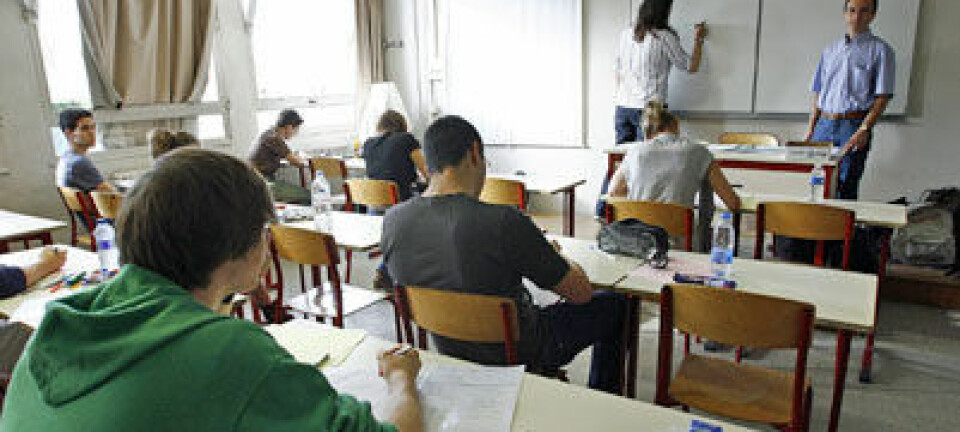
Wrong type of praise can be demotivating
Positive feedback can cause stress and influence performance negatively, shows Swedish study.
The new study also shows that pupils get distracted when negative sounds are played for wrong answers and positive sounds are emitted for correct answers.
Swedish researchers found this out with the help of a functional magnetic resonance imaging (fMRI) machine showing the brain activities of test subjects.
The new information was included in a doctoral dissertation by Alva Appelgren at Karolinska Institute. She is a neuroscientist whose study investigated ways in which different types of feedback affected pupils’ ability to solve problems.
Feedback which directly commented a person’s traits or capabilities, such as “you are clever”, created stress and was less motivating and influenced performance negatively compared to responses relating to pupils’ actions, such as “your choice was correct”. This effect is strongest when the assignments are tougher. When it comes to hard questions, praise of a pupil’s traits interfered with his or her concentration and self-confidence:
“Previous research on praise has found negative long-term effects of trait praise and here we found that it may also have immediate short-term effects,” writes Appelgren in the study.
By giving students 20 different problems to solve, she investigated how motivation and attitudes about the work impacted performance.
It turned out that the students with open minds and expectations of enjoyable and informative tasks did better than those who believed that intelligence and abilities are inherent and unchangeable traits.
Confirms previous research
Terje Manger, professor at the University of Bergen’s Department of Psychology, has studied Norwegian and international research on what motivates pupils. He says that psychological research has shown that different types of praise and feedback give different yields. He is gratified to see neuropsychology and other types of psychology working on the same themes and reaching analogous conclusions. He refers to Psychology Professor Carol Dweck of Stanford University:
“Her research shows that personal praise is counterproductive. It does not work constructively for the weakest pupils and it makes the cleverest ones hesitant about tackling new, harder tasks, because they are afraid of spoiling the impression the teacher has of them,” says Manger.
Dweck makes a distinction between pupils who have a “static mentality” and those with a “growth mentality”. The latter group experience that “practice makes perfect”. If you have a static mentality you have less faith in the results of efforts. This undermines motivation and performance.
A growth mentality is something that can be trained up.
“A static mentality can be changed by an environment that gives feedback on how to solve assignments,” asserts Terje Manger.
Give praise, but make it the right type
Manger thinks we should continue to heap praise on one another, but we need to be aware of what type of praise we are giving.
“We may have thought that personal praise works as a buffer against insecurity, but research shows us otherwise. Pupils have little confidence in teachers who give exaggerated praise. So the best thing is to give constructive information about the way they solve assignments. By praising pupils’ traits we rob them of the opportunity to develop through rational and precise feedback relating to what they actually do,” says the professor.
-------------------------------------
Read the Norwegian version of this article at forskning.no
Translated by: Glenn Ostling









